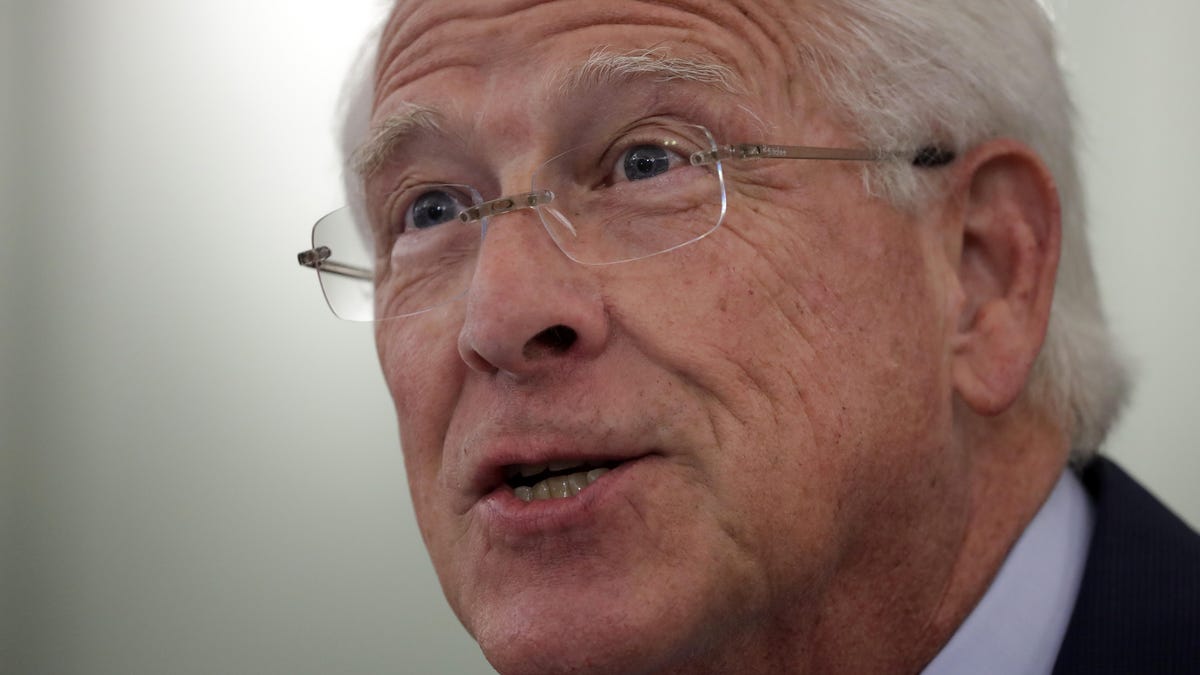Senate Republicans introduce bill aimed at modifying Section 230
New legislation would base legal liability protections on whether content moderation is being conducted on an "objectively reasonable belief" standard.

Sen. Roger Wicker was among a trio of Republican senators introducing legislation to modify online liability protections.
Three Republican senators on Tuesday introduced legislation aimed at modifying a federal law that shields online platforms from liability for material posted by their users.
Introduced by Sens. Roger Wicker (Miss.), Lindsey Graham (S.C.) and Marsha Blackburn (Tenn.), the Online Freedom and Viewpoint Diversity Act would modify Section 230 of the Communications Decency Act by conditioning that protection from liability would depend on content moderation being on an "objectively reasonable belief" standard.
It proposes to replace the original act's term "otherwise objectionable" with more specific terms such as "promoting terrorism," "unlawful" content, and content that promotes "self-harm." The bill would also modify the definition of "information content provider" to include instances of people editorializing or modifying content created or developed by another person or entity beyond changes to the content's appearance.
Republicans have long accused Facebook, Twitter and other social media platforms of abusing the legal protection to censor conservative views. President Donald Trump has championed that position, signing an executive order in May that requests a government review of Section 230.
"For too long, social media platforms have hidden behind Section 230 protections to censor content that deviates from their beliefs," Wicker said in a statement.
Earlier Tuesday, Trump took to Twitter to criticize the online platform and urge Republican Senate Majority Leader Mitch McConnell to repeal the legal protections.
"Why does Twitter leave phony pictures like this up, but take down Republican/Conservative pictures and statements that are true? Mitch must fight back and repeal Section 230, immediately. Stop biased Big Tech before they stop you!," Trump wrote in his tweet, which included the popular 2019 Moscow Mitch meme featuring an image of McConnell's face superimposed on the body of a Russian guard in Moscow's Red Square.
Why does Twitter leave phony pictures like this up, but take down Republican/Conservative pictures and statements that are true? Mitch must fight back and repeal Section 230, immediately. Stop biased Big Tech before they stop you! @HawleyMO @MarshaBlackburn https://t.co/ah0nMeQdM0
— Donald J. Trump (@realDonaldTrump) September 8, 2020
Section 230 has drawn sharp criticism from the left, as well. Democrats have attacked the statute for allowing Silicon Valley companies to deflect responsibility for disinformation and deceptive content that flourishes on their sites.
The tech industry has warned that revisions to Section 230, especially those proposed by the Trump administration, could restrict free speech online. The industry argues that without the legal protections, tech platforms would take a stricter approach to moderating content to reduce legal liability.
Social media giants have faced losing their protection under a re-examination of Section 230 before. In June 2019, Sen. Josh Hawley, a Republican from Missouri, introduced the Ending Support for Internet Censorship Act, which would remove tech companies' automatic immunity.
A month later, representatives from Google, Facebook and Twitter testified in a congressional hearing that their respective companies made mistakes on what content gets published, but that they aren't censoring with a political bias.
Facebook and Twitter declined to comment. Google didn't immediately respond to a request for comment on the new legislation.

